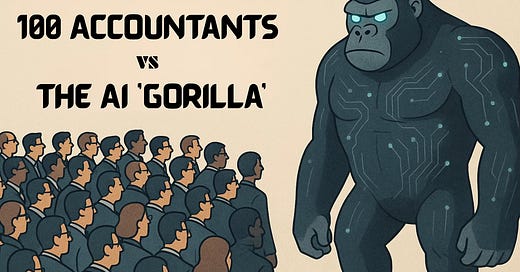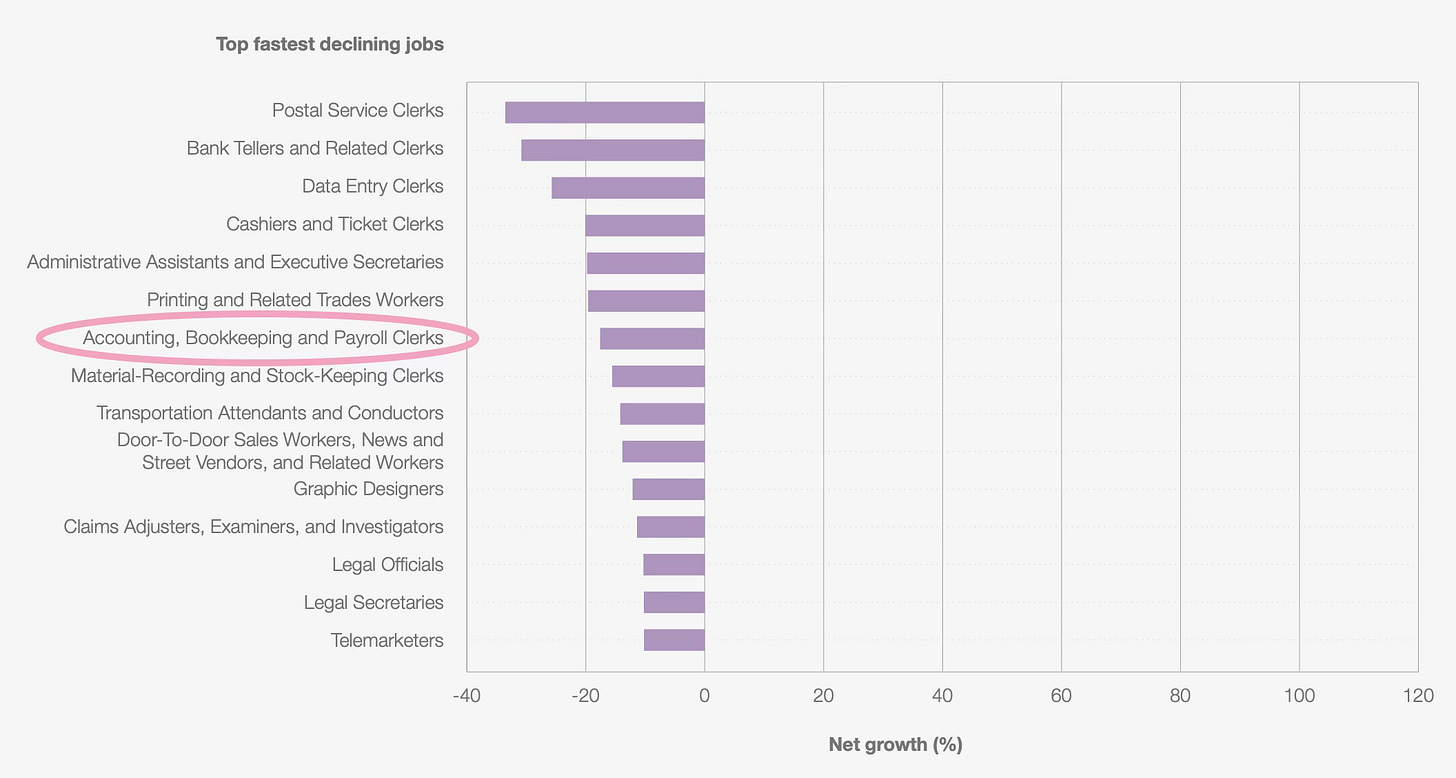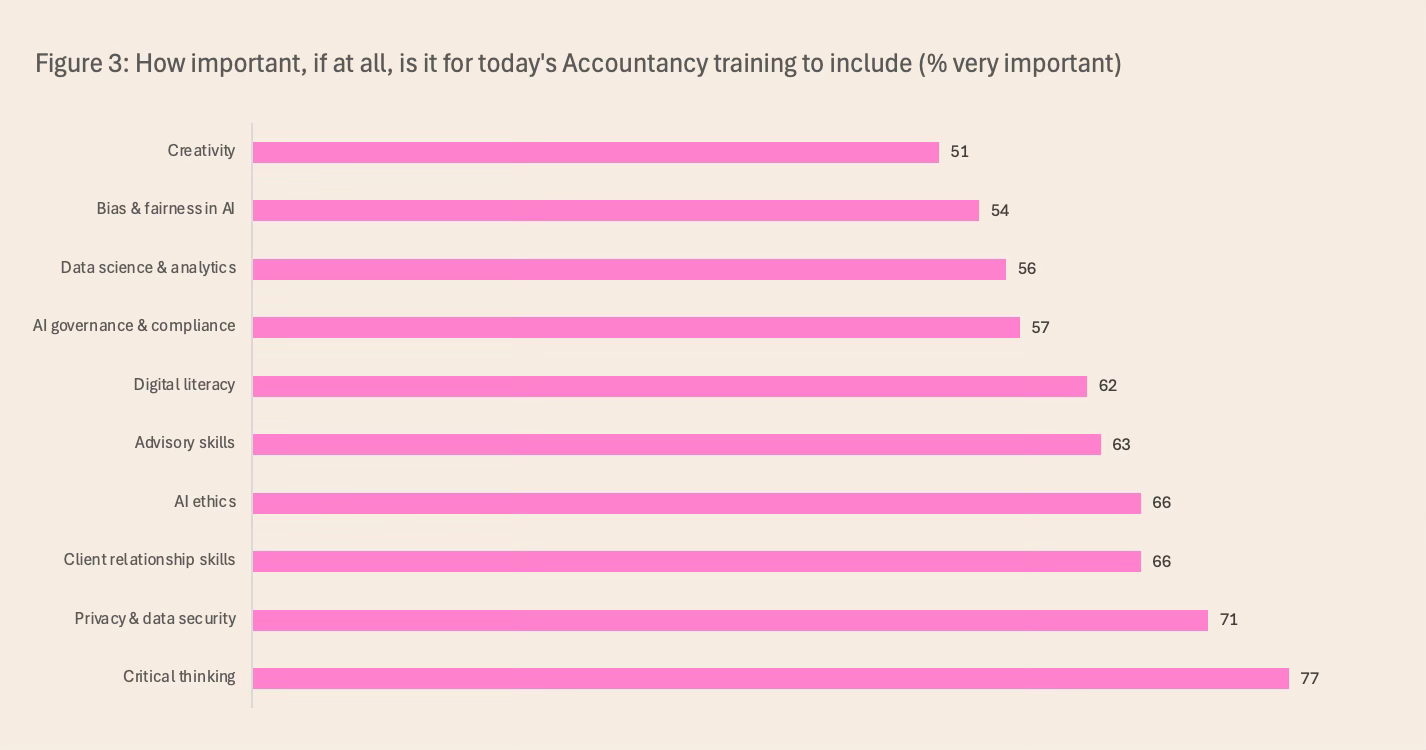Doctor. Lawyer. Accountant. Engineer.
Traditionally, these professions have always been considered the only acceptable career paths to many parents. Interestingly, this perception isn't limited to just traditional societies, at least where accounting is concerned.
Recently, a prominent US economist confidently assured me that accounting remains among the safest professions to encourage our children towards.
However, according to the latest World Economic Forum (WEF) Future of Jobs Report, the outlook might not be so certain. So, are we accountants truly safe, or are we resting on false assurances?
Can we out-study AI?
The now-viral “100 men vs the gorilla” meme circulating on social media makes for entertaining debate but let’s be clear: 100 humans (even if they’re accountants) are no match for a gorilla, real or artificial. Similarly, the reality is simple and sobering: we cannot out-study or out-process AI in any field.
Human brains are limited by design, we retain information in short bursts, often forgetting and re-learning as we go. By contrast, AI systems can absorb vast quantities of data almost instantaneously, storing and retrieving it with ‘flawless’ accuracy. To illustrate, human working memory (our ability to hold and manipulate information in real time) typically handles around 15 to 20 tokens (equivalent to a short sentence). In stark contrast, OpenAI’s ChatGPT-4 can manage up to 128,000 tokens (roughly 300 pages), while Google’s Gemini handles an extraordinary 1.5 million tokens (approximately 1,500 pages).
Attempting to compete with AI in domains such as mathematics, language, or memorisation, where it already excels, is not only futile but strategically short-sighted. The smarter approach is to focus on what makes us uniquely human.
Because while AI may have the edge in data processing, it lacks the qualities that underpin sound judgement and nuanced decision-making. Humans bring emotional intelligence, ethical discernment, contextual understanding, and the ability to navigate ambiguity: skills that cannot be coded or computed. In the accountancy profession, this means interpreting the story behind the numbers, applying professional scepticism, exercising integrity, and advising clients with insight and empathy.
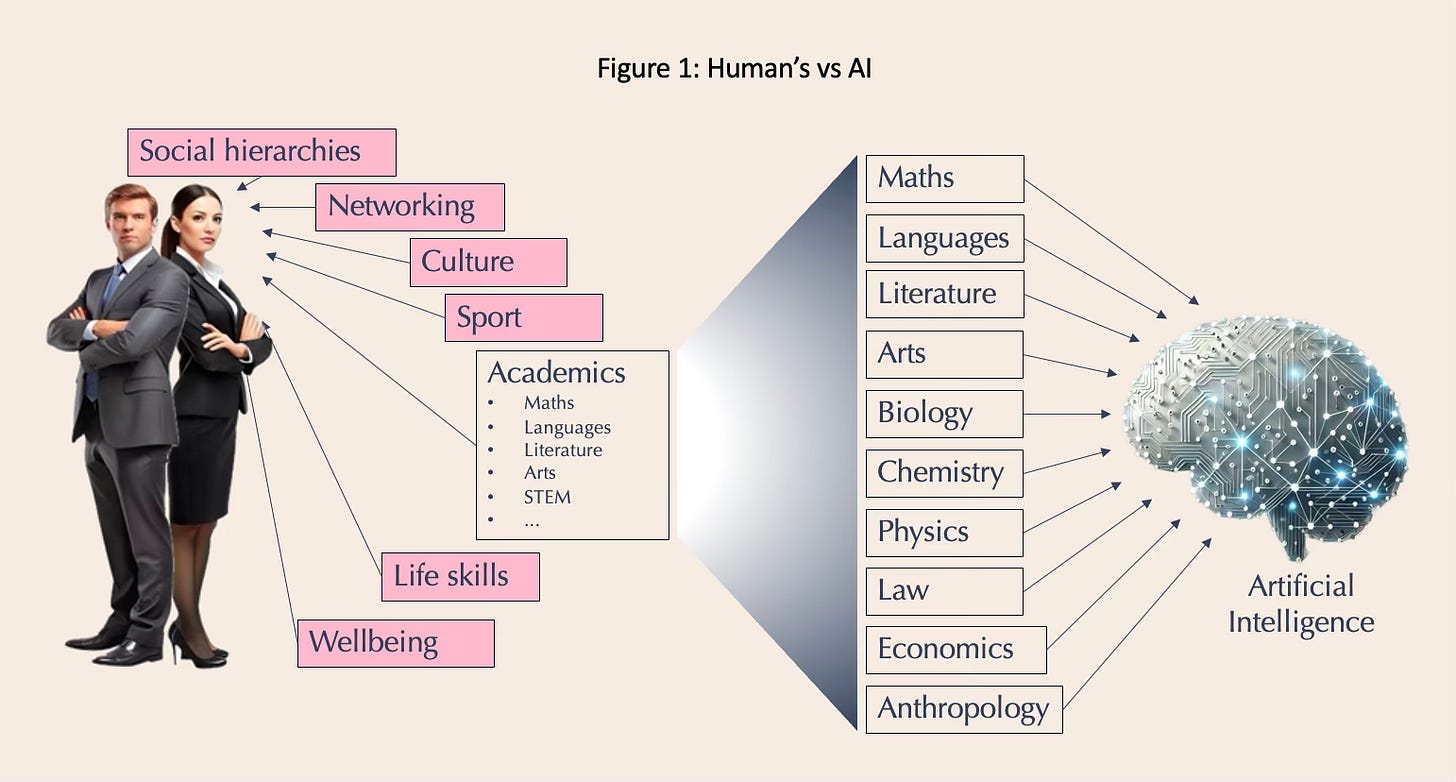
Choosing the ‘right’ LLM?
We may not be able to compete with Large Language Models (LLMs) directly, but if we are to work with them, selecting the appropriate AI tool for specific tasks is essential. Benchmarking AI systems helps us identify their relative strengths and suitability.
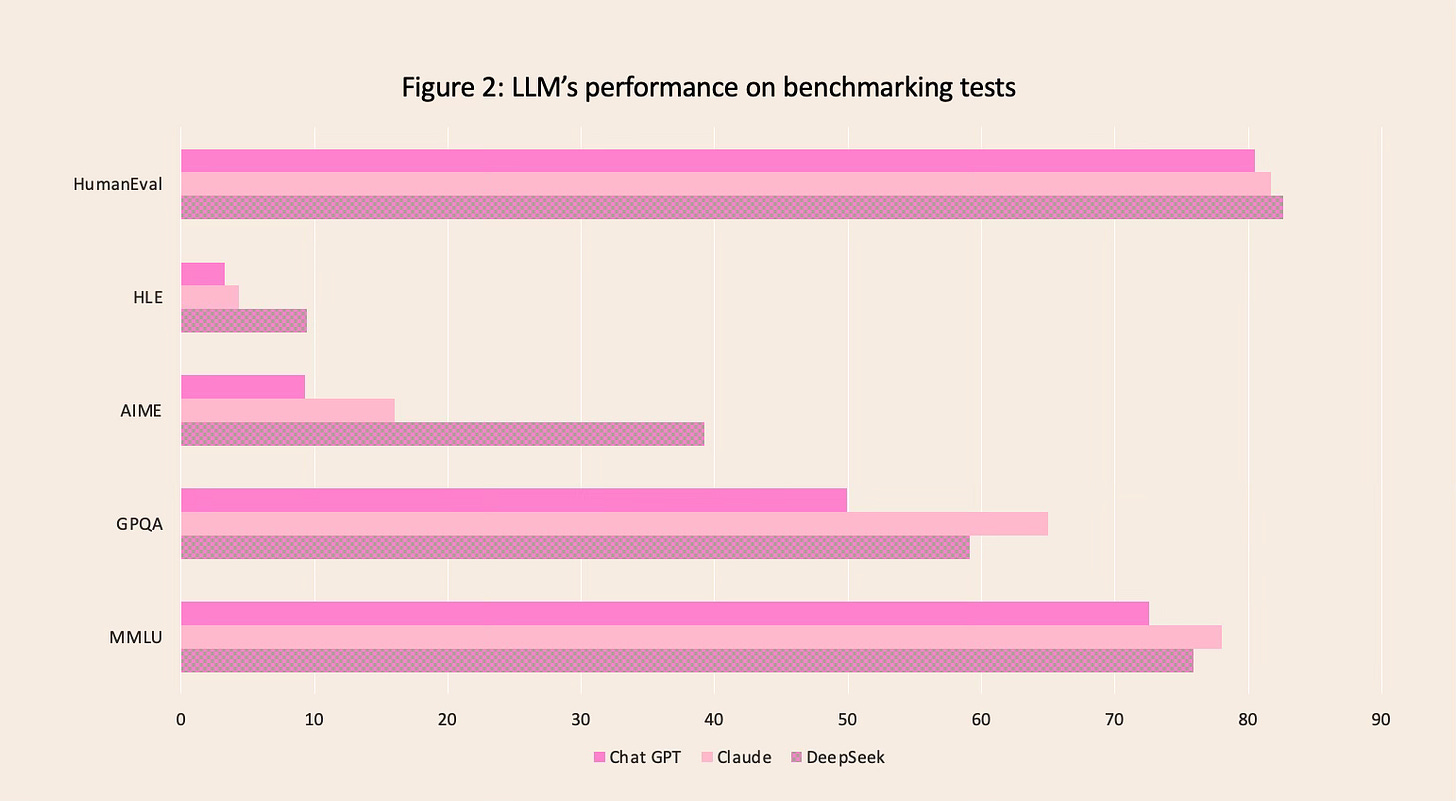
Here’s a brief review of some of the key benchmarks:
HumanEval: Assesses AI’s proficiency in generating accurate computer code from natural language instructions.
Humanity's Last Exam (HLE): Evaluates AI's capability to solve real-world professional problems typically faced by humans.
AIME (American Invitational Mathematics Examination): Tests advanced mathematical reasoning skills.
GPQA (General Purpose Question Answering): Measures broad and generalised knowledge application.
Massive Multitask Language Understanding (MMLU): Covers over 50 subjects, from law and finance to ethics and history.
Selecting the ‘right’ AI for the job is therefore key. Appendix 1 contains a more detailed list of LLM’s benchmarking scores organised by speciality.
Personally, ChatGPT has become my default choice, my new ‘Google.’ Even within ChatGPT, there are tailored applications for specific needs. Other favourites are Perplexity AI which excels at sourcing citations and Grok (Twitter’s AI) that allows real-time image generation freer from constraints on output. Everyone should have an AI toolkit—what's in yours?
Can AI pass accountancy exams?
Benchmark tests like MMLU or GPQA don’t specifically assess accounting knowledge, so I was curious to see how would my favourite AI fared on professional accountancy exams?
Much like many trainee accountants, ChatGPT-3.5 initially failed the CPA exam. But in 2023, researchers1 found that with a little prompting and training, GPT-4 passed most major U.S. accounting certifications.
84.3% Certified Public Accountant (CPA)
86.6% Certified Management Accountant (CMA)
85.5% Certified Internal Auditor (CIA)
83.8% Enrolled Agent (EA)
What about the UK? I found no public evidence that ChatGPT has passed the ICAEW (Institute of Chartered Accountants in England and Wales) exams, the closest UK equivalent to the U.S. CPA. But with emerging models like DeepSeek and Claude outperforming previous LLMs, it's likely just a matter of time.
So, What Does This Mean for Accountants?
We’ve already established that humans can’t out-study AI, our working memory isn’t designed to rival models that can process millions of tokens in seconds. But given that AI can’t replicate is our judgment, ethics, and capacity for nuanced human insight, that’s where the future of accountancy lies.
The ICAEW’s latest research2 reinforces this. When asked what skills are most important for today’s accountancy training, respondents didn’t put data science or even AI itself at the top. Instead, they ranked critical thinking highest, followed by privacy and data security, client relationship skills, and AI ethics. These are human capabilities that cannot simply be automated or coded into a machine.
The role is already shifting: from inputting data to interpreting it; from ticking compliance boxes to exercising ethical judgment; and from reporting past results to advising on strategic decisions. AI won’t eliminate our profession, but it will undoubtedly elevate those who are willing to adapt and embrace AI, not to see it as a threat but as a collaborative partner.
My next article, Chatting with your AI, will examine how to use your AI toolkit to your advantage.
Appendix 1: Benchmark comparison table evaluating the performance of multiple AI models
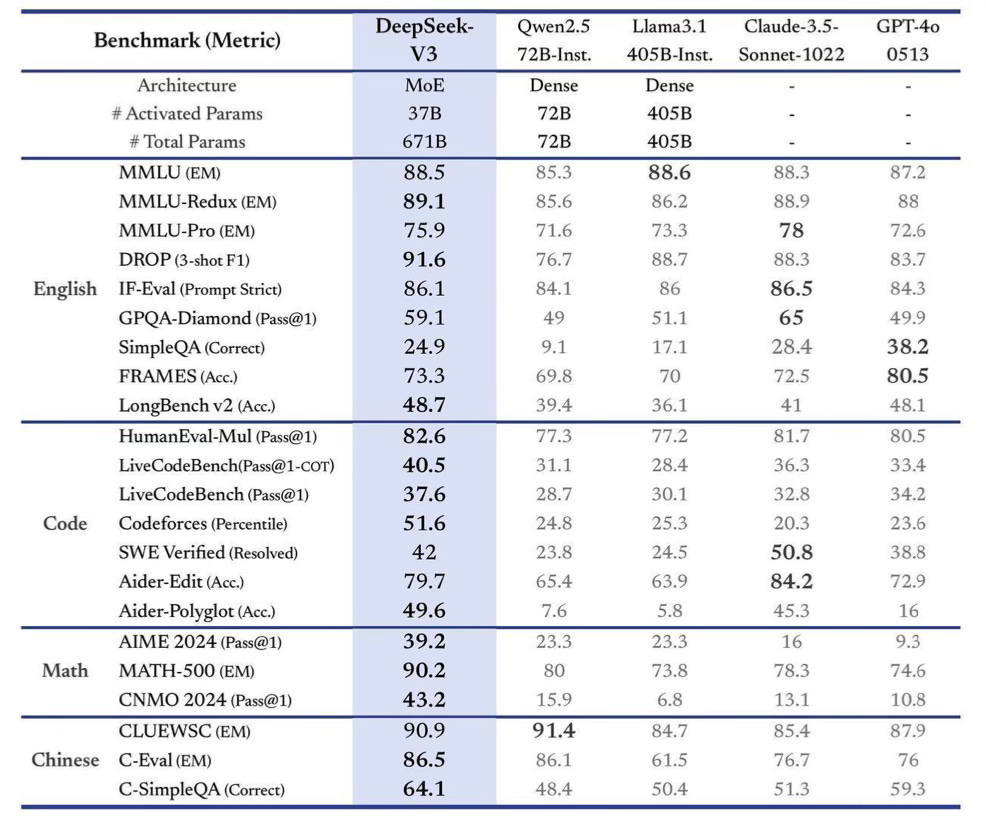
Eulerich, Marc and Sanatizadeh, Aida and Vakilzadeh, Hamid and Wood, David A., (2023) Is it All Hype? ChatGPT’s Performance and Disruptive Potential in the Accounting and Auditing Industries


